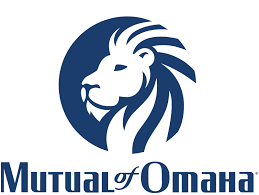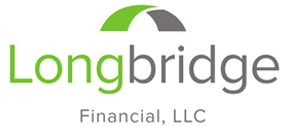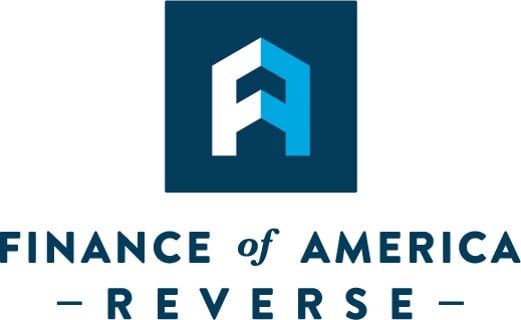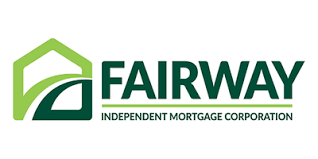
Reverse mortgage
- Trusted financial provider with over 100 years of history
- Multiple disbursement options to fit your financial needs
- No monthly payments required during the life of the loan
- Personalized customer service with strong borrower support
- High upfront and ongoing costs compared to other home equity options
- Reduces home equity, leaving less for heirs
- Full repayment required when the loan ends
- No online application; must work with a loan officer
| Reverse mortgage types | HECM reverse mortgage, HECM for purchase, HomeSafe reverse mortgage, refinance reverse mortgage |
| Eligible properties | Principal residences under four units |
| Eligible states | Licensed in 49 states (not available in New York) |
| Loan amounts | Up to $4 million |
| Fees | Origination fee, mortgage insurance, closing costs, and interest |
Mutual of Omaha has been a trusted name in financial services for over a century, and its reverse mortgage products reflect that reliability. As the second-largest reverse mortgage provider, Mutual of Omaha offers flexible disbursement options and personalized service.
However, reverse mortgages are expensive loans that reduce your home equity over time. If you’re considering a reverse mortgage for retirement income, Mutual of Omaha stands out for its strong reputation and customer care—but be sure to weigh the long-term costs and alternatives before making a decision.
Advertisement
Table of Contents
- How does a Mutual of Omaha reverse mortgage work?
- Who’s eligible for a Mutual of Omaha reverse mortgage?
- How do you repay a reverse mortgage from Mutual of Omaha?
- Pros and cons of Mutual of Omaha’s reverse mortgage
- Is Mutual of Omaha a reputable lender?
- How to apply for a Mutual of Omaha reverse mortgage
- How do other home equity products compare to Mutual of Omaha’s reverse mortgage?
- Mutual of Omaha reverse mortgage FAQ
- How we rated Mutual of Omaha’s reverse mortgage
How does a Mutual of Omaha reverse mortgage work?
A reverse mortgage is a type of loan that allows homeowners to borrow against the equity in their homes without making monthly payments. Unlike a traditional home equity loan or home equity line of credit (HELOC), a reverse mortgage becomes your primary mortgage rather than a second mortgage.
This means that any existing mortgage on your home must first be paid off using the proceeds from the reverse mortgage. If your home is already paid off, the full amount of the reverse mortgage becomes available for you to use.
Mutual of Omaha offers flexibility in how you can receive your funds. Once any existing mortgage is paid off, homeowners can choose from several disbursement options:
- Lump sum payment: Receive all your funds at once at a fixed interest rate.
- Line of credit: Access funds as needed, only paying interest on the amount you’ve used.
- Monthly installments: Get regular payments, which can be set up for a fixed period or for as long as you live in the home.
- Combination of options: You can customize how you receive your funds by combining any of the above options to fit your financial needs.
With Mutual of Omaha’s reverse mortgage products, borrowers can access their home equity to cover expenses, supplement retirement income, or pay for unexpected costs—all without making monthly mortgage payments. The loan balance grows over time and is typically repaid when the homeowner sells the home, moves out permanently, or passes away.
Mutual of Omaha offers four main reverse mortgage products.
- HECM reverse mortgage. The HECM is a traditional reverse mortgage backed by the Federal Housing Administration (FHA). It has a loan limit of $1,209,750 in 2025. This limit is set by the FHA and represents the maximum home value that can be used to calculate the available loan amount, even if your home’s market value is higher.
- HECM for purchase. It’s possible to use the loan proceeds from a reverse mortgage with Mutual of Omaha to buy a new home.
- HomeSafe reverse mortgage. Mutual of Omaha offers the Finance of America‘s proprietary HomeSafe Reverse Mortgage for higher-value homes. Loans can go up to $4 million, making this an attractive option for homeowners with high-value properties.
- Refinance loan. Mutual of Omaha gives borrowers the option to refinance a reverse mortgage into a new one.
To determine which type of reverse mortgage is right for you, you’ll need to talk to a loan officer and go through the required FHA reverse mortgage counseling before moving forward.
How much can you get from a reverse mortgage?
The amount you can borrow with a reverse mortgage depends on a few key factors, including your age, the interest rate, and your home’s value. Mutual of Omaha calculates your borrowing limit based on two terms: the maximum claim amount and the principal limit. Understanding these terms can help you get a better idea of how much you may be able to access.
- Maximum claim amount. This is usually the appraised value of your home, but it could also be the sale price or the United States Department of Housing and Urban Development (HUD) loan limit if those are lower. It represents the home value that Mutual of Omaha uses to calculate your loan eligibility. However, this isn’t the amount you can borrow.
- Principal limit. This is the actual amount you can borrow and depends on three key factors: your age, the interest rate, and the maximum claim amount. Generally, the older you are, the higher the percentage of your home’s value you can access. A lower interest rate can also increase how much you’re eligible to receive.
For example:
- A 70-year-old borrower with a home worth $500,000 and a 4.5% interest rate may be eligible to borrow around 50-60% of their home’s value.
- A 62-year-old borrower with the same home value and a 6% interest rate may only be able to borrow around 40-50%.
- An 80-year-old borrower with a $500,000 home and a 4.5% interest rate could borrow 60-65% of their home’s value.
Mutual of Omaha will arrange for an independent appraisal to determine your home’s value. This is a critical step in setting your borrowing limit. Additionally, factors like the condition of your home and the local real estate market can impact the appraised value.
Costs, fees, and ongoing expenses
Getting a reverse mortgage involves a combination of upfront fees and ongoing costs that homeowners must budget for throughout the life of the loan. Mutual of Omaha’s reverse mortgage fees are typical of most reverse mortgage lenders. Here’s a breakdown of what to expect:
Upfront costs
- Reverse mortgage counseling: $125 – $200. This is required by the FHA and must be completed before your loan is processed.
- Origination fee: Up to 2% for homes valued up to $200,000 and 1% of the remaining amount, but this fee cannot exceed $6,000.
- Closing costs: These include title fees, the cost of the home appraisal, recording fees, document preparation fees, and courier charges.
- First mortgage insurance premium (MIP): This upfront premium is required when your reverse mortgage is originated. It provides protection against potential losses and ensures you’ll receive the expected payouts from your loan.
Ongoing costs
- MIP: In addition to the upfront premium, you’ll also pay annual MIPs on HECM loans. The annual MIP is typically 0.5% of the loan balance. For example, if you’re paying a 4% interest rate, your total payable rate, including MIP, would be 4.5%.
- Homeowners insurance: You must maintain adequate homeowners insurance coverage, and depending on your location, additional flood insurance may be required.
- Property taxes: You’re responsible for keeping your property taxes current. Failure to do so could result in loan default.
- Maintenance costs: As a borrower, you’re responsible for keeping your home in good condition. This includes repairs and general upkeep.
- Homeowners association (HOA) fees: If you live in a community with an HOA, you must continue to pay your association fees.
It’s essential to consider all of these costs when deciding whether a reverse mortgage is right for you. While a reverse mortgage can provide financial flexibility, the ongoing obligations must be factored into your long-term
Who’s eligible for a Mutual of Omaha reverse mortgage?
A reverse mortgage isn’t right for everyone, nor does everyone qualify. The eligibility requirements for a reverse mortgage are federally mandated, so you must meet them regardless of lender.
| Requirement | Details |
| Properties | Single-family homes, properties less than 4 units that are owner-occupied, FHA-approved townhouses, condominiums, and manufactured homes that meet HUD requirements and were built after June 1976 |
| Age | Must be over 62 years of age |
| Residency | Must be your primary residence |
| Equity | At least 50% equity in your home |
| Marital status | Protections exist for non-borrowing spouses, but it’s easier if both spouses are listed as borrowers on the loan. (Both spouses must be 62 or older.) |
| Home condition | Home must be in good condition |
| Recurring costs | Borrower must pay for taxes, insurance, HOA fees, and home upkeep |
| Counseling session | HUD-approved counseling session with third-party counselor required by law |
How do you repay a reverse mortgage from Mutual of Omaha?
You (or your heirs) repay a reverse mortgage all at once at the end of the loan, which is often when you sell or leave the home, or when the borrowers pass away. It also becomes due if you don’t pay for homeowners insurance or taxes or you fail to maintain the home.
The longer you receive money from a reverse mortgage, the more you’ll owe when it’s due. You can sell or refinance the home—or use money from savings to repay the loan. No prepayment penalty applies for paying early on a reverse mortgage from Mutual of Omaha.
Pros and cons of Mutual of Omaha’s reverse mortgage
Reverse mortgages have pros and cons to consider, particularly when it comes to how they affect your long-term finances.
Pros
-
No monthly payments
Reverse mortgages never require a monthly payment.
-
Multiple disbursement options
You may be able to get a lump sum, monthly payments, or a line of credit.
-
Use funds however you like
No restrictions on how you use income from a reverse mortgage.
-
Retire in place
Stay in your home with reverse mortgage income.
Cons
-
Reverse mortgages are expensive
You can roll the interest rate, origination fee, and other costs into the loan, but they’re high regardless of lender.
-
Equity decreases
Your equity will decline as your disbursements add up.
-
You or your heirs must repay all at once
When you leave your home, the reverse mortgage is due immediately, and the home may need to be sold.
Reverse mortgages are a good option if you need supplemental income and want to stay in your home through retirement. They’re flexible, but they’re also expensive financial tools. These pros and cons aren’t unique to Mutual of Omaha and apply to reverse mortgages from other lenders.
Is Mutual of Omaha a reputable lender?
When choosing a financial product as significant as a reverse mortgage, it’s important to feel confident in your lender. Mutual of Omaha is a well-established name in the financial services industry, and its reverse mortgage division receives solid customer feedback.
Here’s a quick look at how Mutual of Omaha scores across major review platforms:
| Source | Rating | Number of reviews |
| Trustpilot | 4.7/5 | 880 |
| 4.8 | 8 | |
| Better Business Bureau | 3.82 | 131 |
Many borrowers praise Mutual of Omaha for its responsive customer service and personal attention to loan files. This can be reassuring, especially when navigating a complex financial product like a reverse mortgage.
However, no lender is perfect. Some negative reviews highlight communication delays or misunderstandings during the loan process. It’s worth noting that Mutual of Omaha seems proactive in responding to feedback and resolving issues.
Ultimately, if you value working with a well-known, reputable lender that offers personalized service, Mutual of Omaha could be a good fit. But as with any financial product, take time to read the fine print, compare your options, and ensure that the loan aligns with your long-term financial goals.
How to apply for a Mutual of Omaha reverse mortgage
The application with Mutual of Omaha is much like other reverse mortgage lenders. There’s no option to apply online, and you’ll work with a loan officer in your area, which offers personalized support.
In total, the process typically takes around 45 days. Here’s what to expect:
- Submit your contact information. You can submit your information online in less than a minute.
- Complete required reverse mortgage counseling. Reverse mortgage counseling is required by law and must be completed before you apply. Counseling covers the features, drawbacks, and alternatives.
- Apply. Your lender will help you with the required documentation, which may include identification, a copy of your homeowner’s insurance bill, and property taxes.
- Get an appraisal. A home appraisal is typically needed for a reverse mortgage.
- Go through processing and underwriting. Underwriting is a manual process with a reverse mortgage and may take longer than with a traditional mortgage.
- Close on the loan and receive your funds. If approved, you’ll sign for your loan and get the funds.
If you’re denied, find out why. Common reasons for denial include:
- Age
- Counseling session not completed
- Not enough equity
- Property condition
- Lender financing determination has determined you can’t pay for mortgage insurance, taxes, or homeowner insurance
It’s possible to reapply later if you can rectify these issues.
How do other home equity products compare to Mutual of Omaha’s reverse mortgage?
Compared with other home equity products, such as a home equity line of credit (HELOC), home equity loan, or a cash-out refinance, a reverse mortgage tends to be the most expensive option. It’s often best for those who can’t qualify for other home equity products.
Home equity loans and HELOCs are loans you must qualify for and pay monthly. They preserve the equity in your home much better and have lower closing costs. Similar to a credit card, you can use a HELOC as you need it, often with a variable APR.
A cash-out refinance is an excellent option for those who need a larger sum of money (such as for a renovation) and can qualify for the loan payment. It’s not a second mortgage—like a HELOC or a home equity loan—and it only requires one payment. Consider all your options, including our recommendations for cash-out refinance companies and home equity companies, before deciding to use a reverse mortgage.
You can also compare Mutual of Omaha to our other recommended reverse mortgage lenders. Here is how Mutual of Omaha compares to alternatives:
| Company | Best for… | Rating (0-5) |
|---|---|---|

|
Best Customer Reviews |
|

|
Best for Flexible Options |
|

|
Best Established Company |
|

|
Best for Fast Closing |
|
Check out our best reverse mortgages companies page to learn more.
Mutual of Omaha reverse mortgage FAQ
How long does it take to get funds from Mutual of Omaha?
Once the loan closes, Mutual of Omaha should disburse the reverse mortgage funds within a few days.
However, the reverse mortgage process involves a series of steps, including counseling, an application, appraisal, and closing. The time all these stages take may vary based on individual circumstances and complexities.
Does Mutual of Omaha have insurance requirements?
Yes, insurance requirements exist when you apply for a reverse mortgage with Mutual of Omaha. You must maintain adequate homeowners insurance coverage for the life of the loan.
In some cases, flood insurance may be required if the home is in a flood-prone area. It’s imperative to understand these requirements. Failing to maintain the requisite coverage could result in default.
Can you back out of a reverse mortgage contract?
Yes, you can back out of a reverse mortgage contract with Mutual of Omaha. The law provides a “right of rescission,” which allows you to cancel your loan within three business days of closing without any penalty.
This period gives you time to carefully review the terms and conditions and consult with a legal advisor or a trusted family member before making a final commitment.
How we rated Mutual of Omaha’s reverse mortgage
We designed LendEDU’s editorial rating system to help readers find companies that offer the best student loans. Our system awards higher ratings to companies with affordable solutions, positive customer reviews, and online transparency of benefits and terms.
We compared Mutual of Omaha to several reverse mortgage lenders, using hundreds of data points from company websites, public disclosures, customer reviews, and direct communication with company representatives. We weighted, scored, and combined each factor to produce a final editorial rating. This rating is expressed on a scale from 1 to 5, with 5 being the highest possible score. Our take is represented in our rating and best-for designation, recapped below.
| Company | Best for… | Rating (0-5) |
|---|---|---|

|
Best Established Company |
|
About our contributors
-
 Written by Alene Laney
Written by Alene LaneyAlene Laney is a personal finance writer specializing in mortgages, home equity, and consumer financial products. A credit card rewards enthusiast and mother of five, Alene enjoys sharing money-saving and money-making strategies.
-
 Edited by Amanda Hankel
Edited by Amanda HankelAmanda Hankel is a managing editor at LendEDU. She has more than seven years of experience covering various finance-related topics and has worked for more than 15 years overall in writing, editing, and publishing.